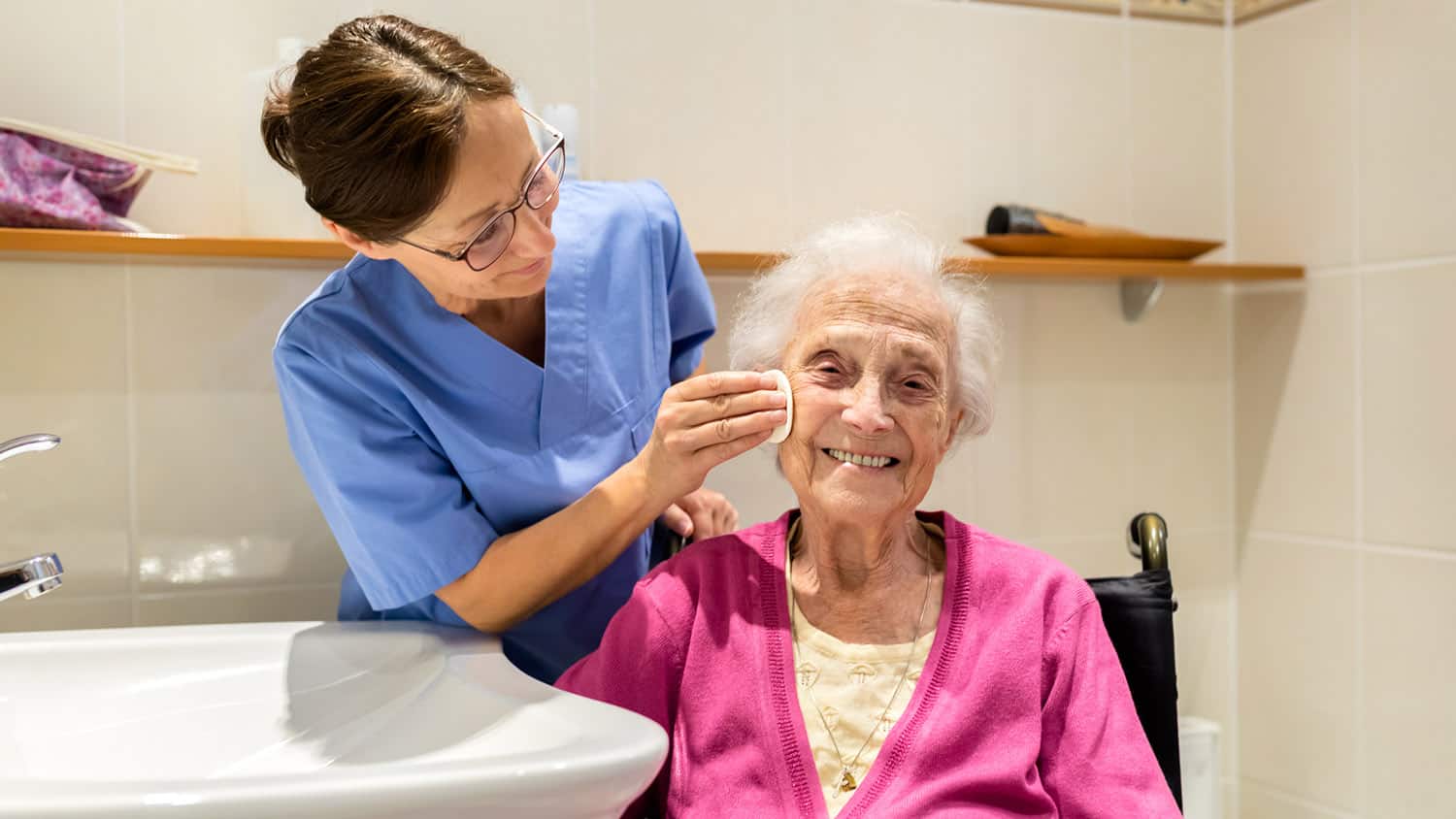
4 Ways to Communicate Effectively with the Nursing Home
I suspect nearly all of you have friends or relatives living in nursing homes or other long-term care facilities.
We all know that society tends to hold negative perceptions about nursing homes. They’re sometimes seen as places we should avoid and mistrust. Sadly, in some instances, they deserve this reputation.
However, I’ve had relationships with nursing homes for more than 40 years – as a family member, CNA, nurse and now as a volunteer.
During that time, I’ve learned that the vast majority of caregivers in nursing homes are compassionate, dedicated people who work very hard to provide the very best quality of care for their residents.
Today, I’m sharing tips to help family and friends communicate effectively with caregivers at the nursing home.
Bring Up Questions and Concerns Right Away
Problems are a lot easier to fix when they’re addressed right away. This prevents a minor issue from growing into a mountain. It’s easier for you, too, if you get the problem resolved right away rather than losing sleep over something that’s easily fixed.
Oftentimes, there’s a logical explanation for something that may seem odd to you. It will all make sense when you learn the reason why something is being done a certain way.
If you have a question, then other families are probably wondering the same thing. So, don’t be afraid to ask.
Use the Correct Chain of Command
When you have a concern, it’s usually best to approach the person most directly involved in the situation at the time it happens. If this doesn’t resolve the issue, then go to the next person in the chain of command.
For example, if you speak with the staff nurse and the issue remains unresolved, then speak with the unit manager.
When you see something that’s a concern, jot down a note with the facts. Management finds it much easier to follow up when they know details such as the date, time, what happened and the people involved.
That being said, please don’t carry a notepad and write down notes in front of the staff. I’ve seen people do this, and it makes even the best caregivers nervous.
If you still feel like your concerns remain unresolved, the next step is to contact a nursing home ombudsman. In the United States, every state provides ombudsman services at no cost.
They work as advocates for nursing home residents, and they serve as a liaison between residents and the care facility when concerns arise.
Show Appreciation for the Staff
Working in a nursing home is a challenging job, both physically and emotionally. During a rough shift, it can mean the world to a caregiver when you offer a simple word of thanks.
Also, look for opportunities to give sincere compliments when you see caregivers going the extra mile for their residents.
It’s also important to treat caregivers with respect. The illness or circumstances that led to the need to admit a loved one to a nursing home often leaves emotions frayed. It’s natural for family members to feel guilty, scared, helpless or overwhelmed.
But, too often I’ve seen people take out their frustrations on caregivers in the nursing homes. We need to remember that they’re human beings with feelings, too.
Get Involved at the Nursing Home
When it comes to providing the best possible quality of life for your loved one, consider yourself part of the residents’ care team. Visit as often as you’re able. Join in on activities and consider volunteering if you have time.
Nursing homes generally hold care conferences quarterly. At this time, the care team – including a nurse, social worker, dietician, activity staff and others – get together to review and update a resident’s plan of care.
I strongly encourage you to attend care conferences along with your family member. This is a great opportunity to share information, discuss concerns, and ask questions.
Have you ever worked in a nursing home? What other suggestions do you have to help promote positive communication with caregivers? We’d love to read your valuable insights in the comments below.






